


Sun, sea, harsh and generous land. Liguria di Ponente offers products with unique scent and flavor that the ancient gastronomic tradition handed down to today transforms into unforgettable specialties.
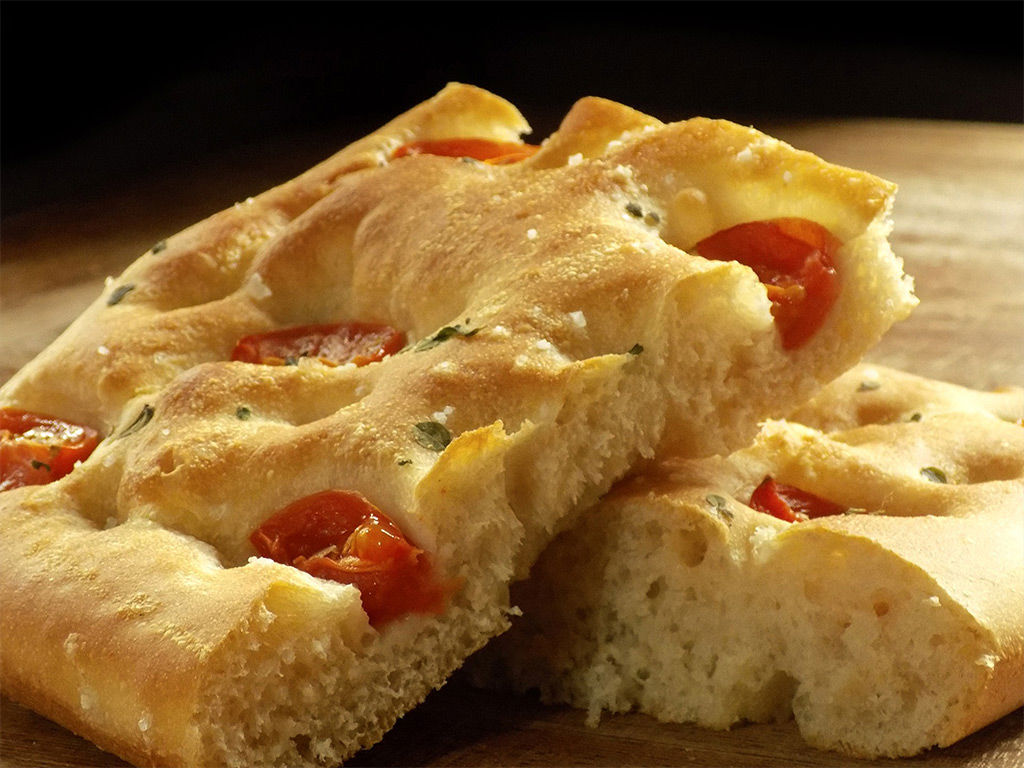
is the "focaccia" with tomato typical of the area, flavored with garlic, taggiasche olives, salted anchovies and oregano. It has an origins of some centuries before that of Neapolitan pizza and clearly the tomato was added later, in the nineteenth century. In each village has its name. Pissalandrea in Oneglia, in honor of Admiral Andrea Doria. Pisadala in Bordighera. Pisciadela in Ventimiglia assonant with the Pissalandière of Nice. Sardenaira in San Remo because it was garnished with sardines, today with anchovies. Macchistrusa in Apricale for the use of one of the five Ligurian mortar sauces, the "machetto", a relative sauce of the "garum" prepared with sardines. Piscadra in Pigna.
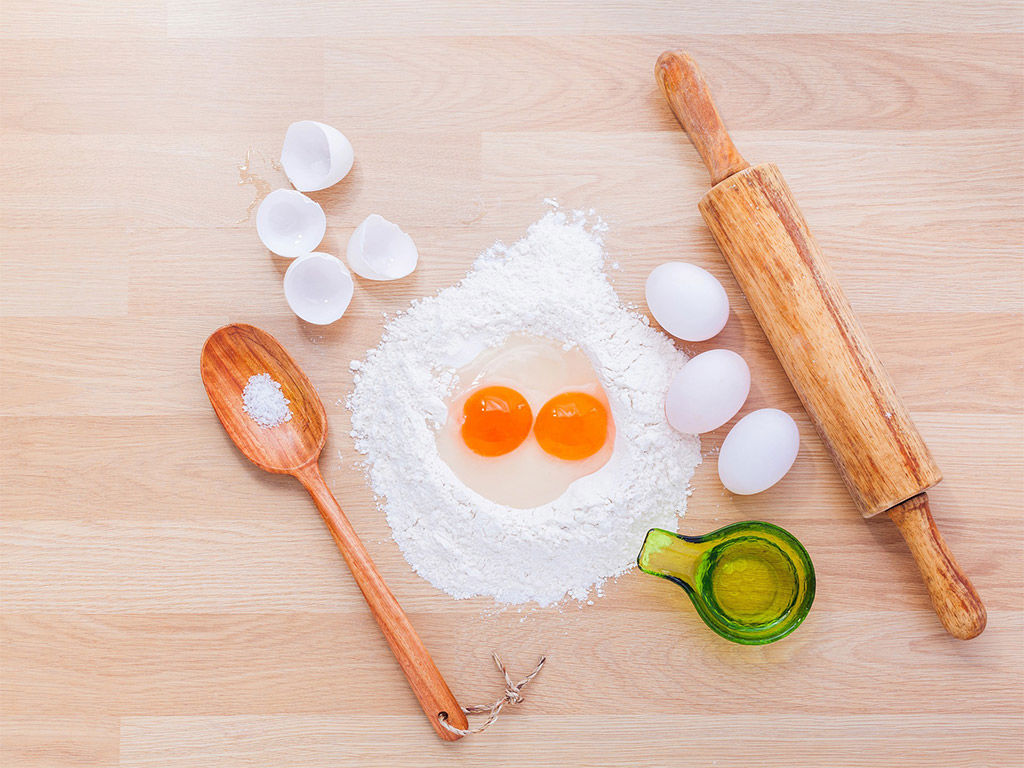
with rice and vegetables depending on the season. In summer they use the “zucchini trombette” (which are actually pumpkins), with a simple sheet of flour, water and oil, filled with slices of zucchini, onion, rice, grated Parmesan, eggs. In winter pumpkin are used.
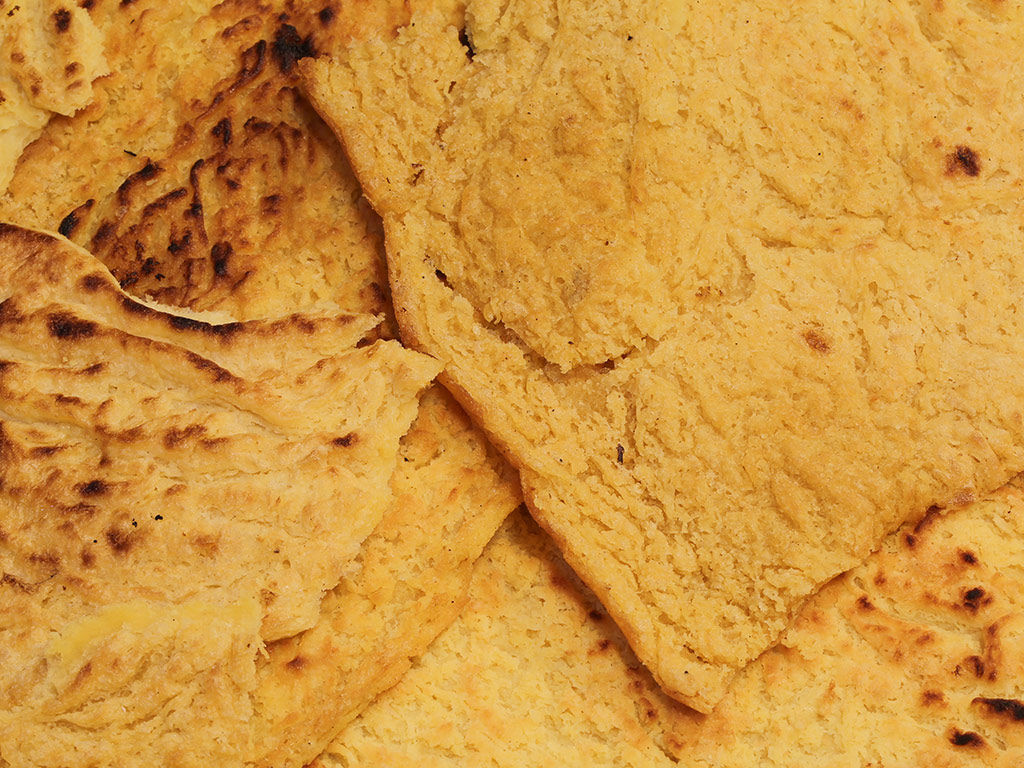
is the poor food par excellence of the Ligurian west riviera. “Fainà”, chickpea flour also called sciamada (flamed) is cooked in a very hot oven (better in a wood oven) in the pan until a golden crust is formed. In the inland villages, Panissa or panizza is eaten. Chickpea flour which was boiled and left to cool in aluminum dishes or cups. You buy it, cut it into strips, and fry in oil.
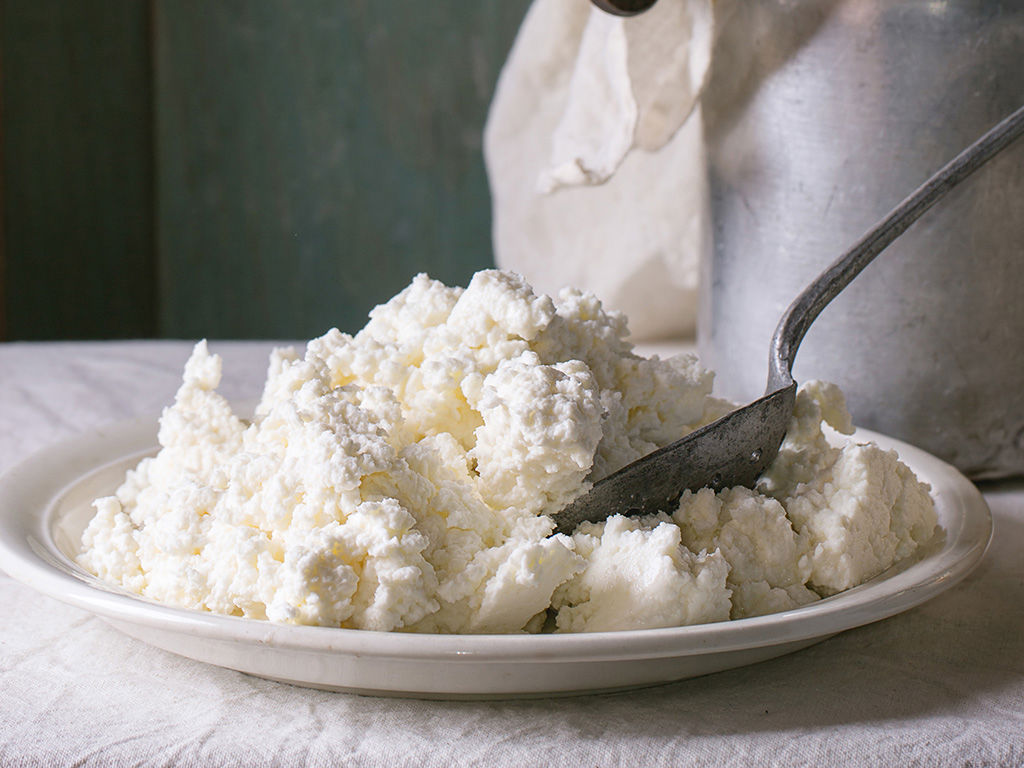
Of pre-Roman origin (Illi barbari manducant pulmentum vocatur brutium states Julius Caesar in De Bello Gallico). The "Pulmentum" is the oldest cheese of Italy derived from the milk curd of goats or sheep perfumed with a glass of aniseed or grappa and left to ferment for two months in a container of wood mixing it occasionally to oxygenate it. You get a whitish, almost gray spreadable cream that is put in glass jars covered with extra virgin olive oil, and is kept in the fridge. It is spread on the breaded and moistened Pan d'ordiu (barley) and has a savory taste and an intense aroma.
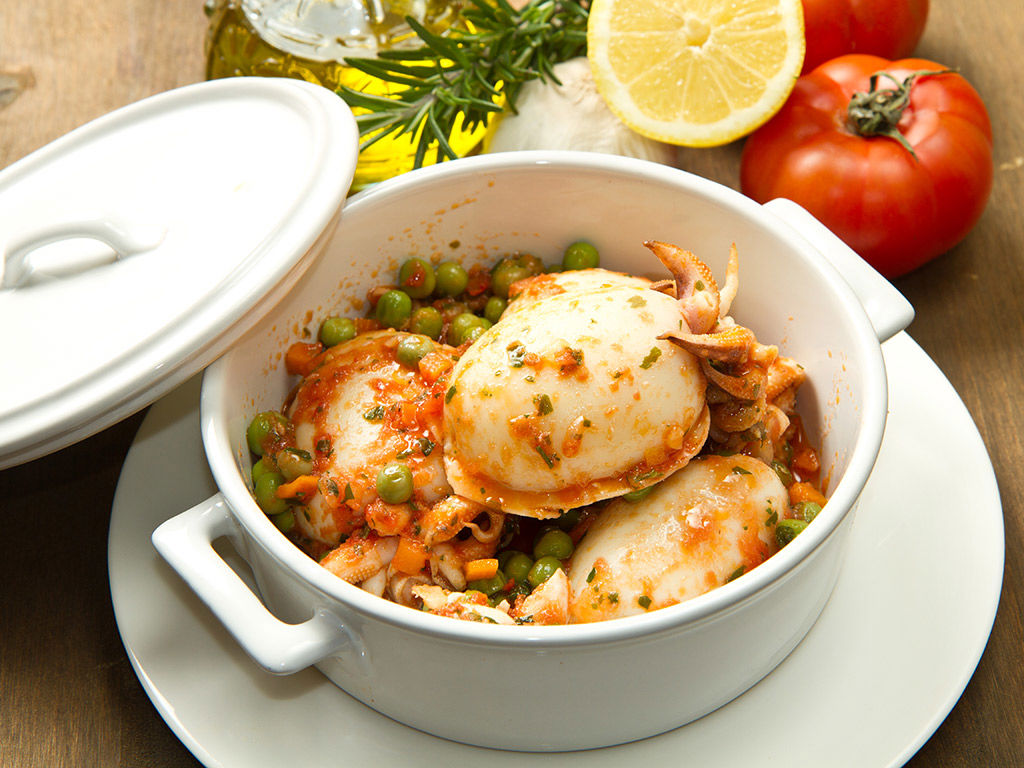
fish is Ligurian, but also from the coast of Provence (bourride). In Sanremo squid and octopus are stewed with oil, pine nuts, capers, mushrooms and parsley. Originally this soup was oriental and has also spread to Sardinia, where however it is prepared with tuna, dogfish and with the addition of an anchovy, garlic, onion, tomatoes, bay leaves. The use of peas or artichokes in the past depended on the different availability of the two vegetables during the year.
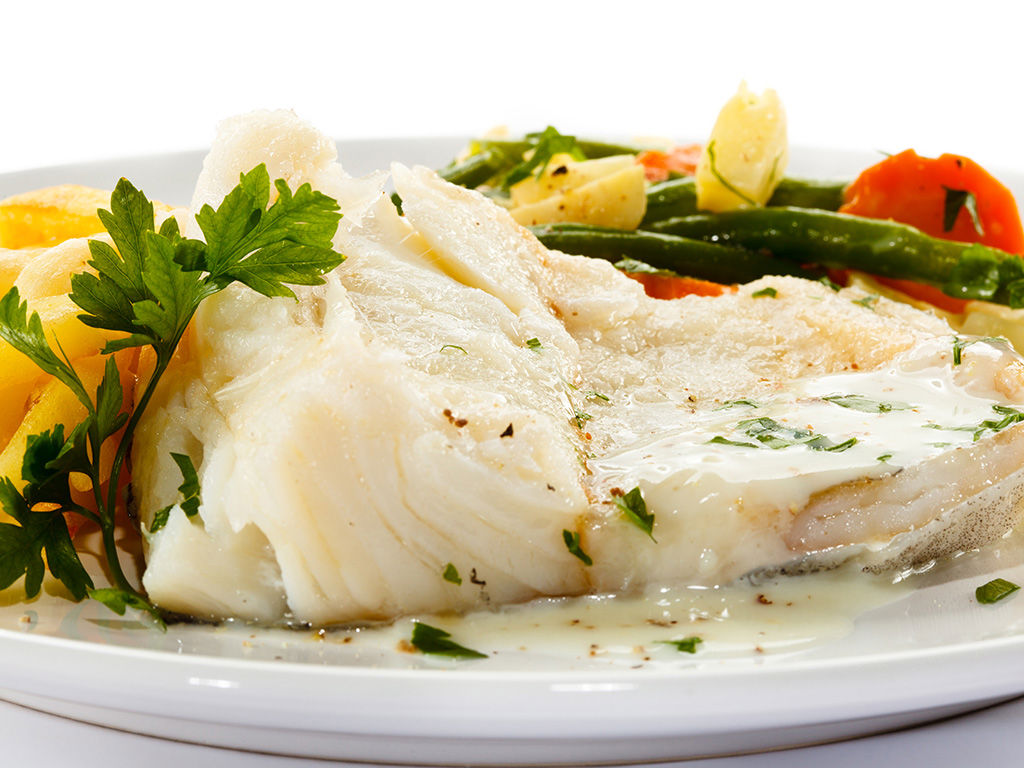
Shaken and seasoned with lemon peel, oil, garlic, olives and potatoes. The second part of the etymology feeds legends: some claim that the task of shaking the pot was entrusted to the "cujun", that is the less clever of the family. Others say that the task of brandishing the pot was of the man, who shaking the pot from sitting, made it clash with his "low parts". In some cases, cod is used (dried cod) which makes the recipe more delicate.
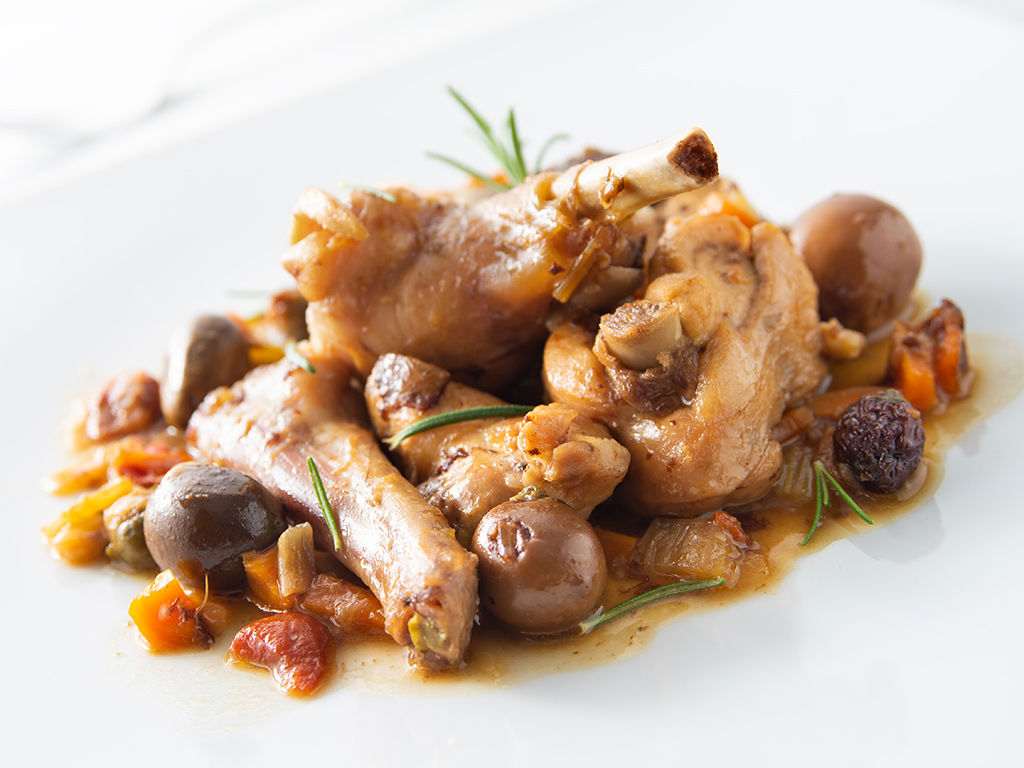
a recurring dish because in the sour Liguria the main source of proteins were the poultry animals. The bouquet garni is fundamental, that is the bunch of aromatic herbs tied tightly with the thread (parsley, a sprig of rosemary, thyme sprigs, a bay leaf, a sprig of fresh oregano). The rabbit is sautéed in a pan with oil, garlic, herbs, white wine, pine nuts and taggiasca olives.
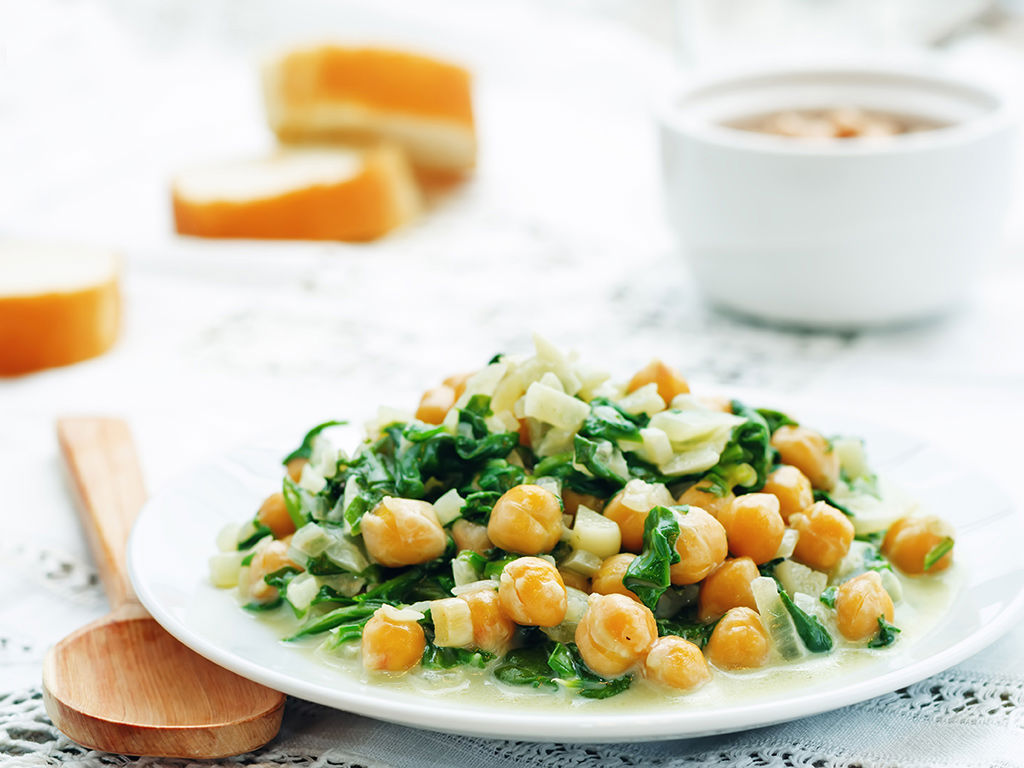
is a dish of Arab origin, always present in the menu of the taverns. Its elements are all vegetables, with a base of beans, carrots, celery, ribs of chard, onions, tomato sauce cooked with pork rind. In ancient times the Day of the Dead was offered in taverns to the most assiduous patrons.
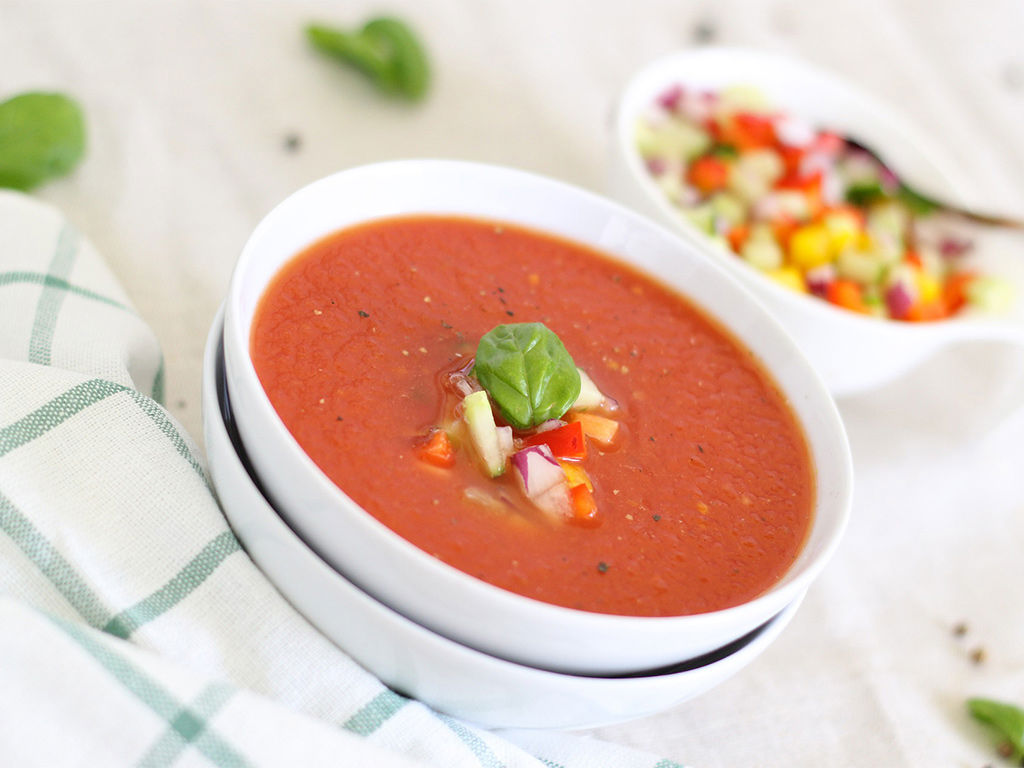
the tomato and anchovy soup that is eaten on the dry sailor's galletta. It was in fact the food of the sailors on board the lamparas and the leudi (Latin sailboats).
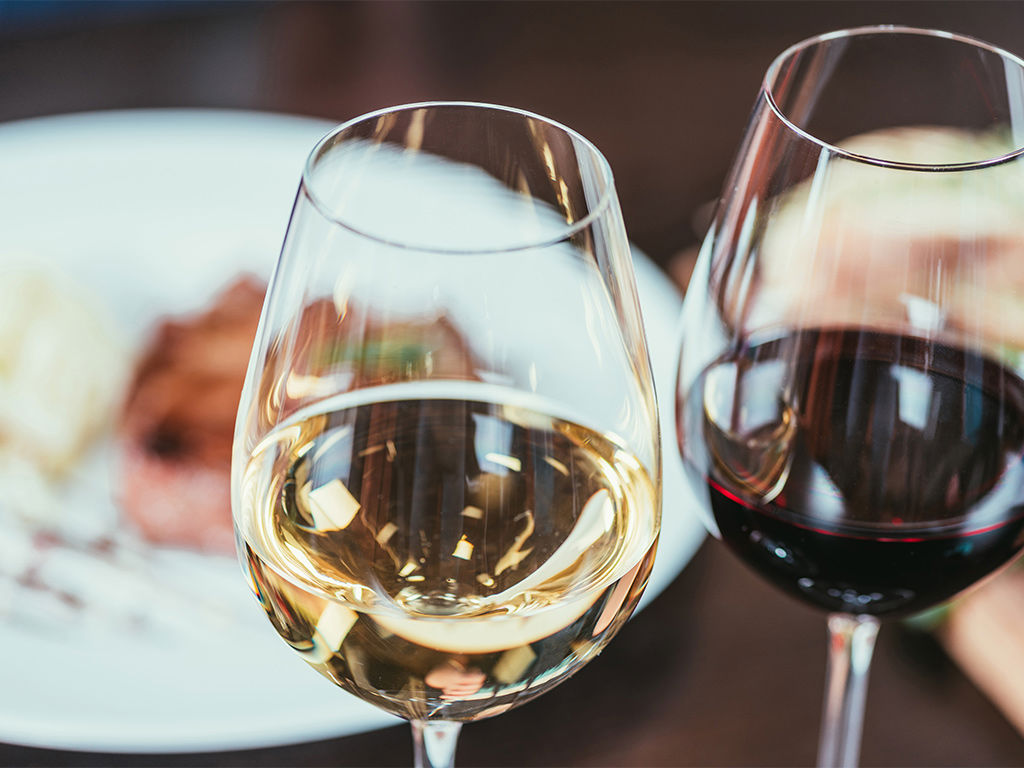
All the aromas of the Western Ligurian Riviera are enclosed in Vermentino: a real sea wine obtained from a semi-aromatic white grape vine protected by the Riviera Ligure di Ponente DOC. Cultivated on terraces that degrade towards the sea from Imperia to the French border, it has a floral and sometimes resinous scent, but a dry and full flavor.
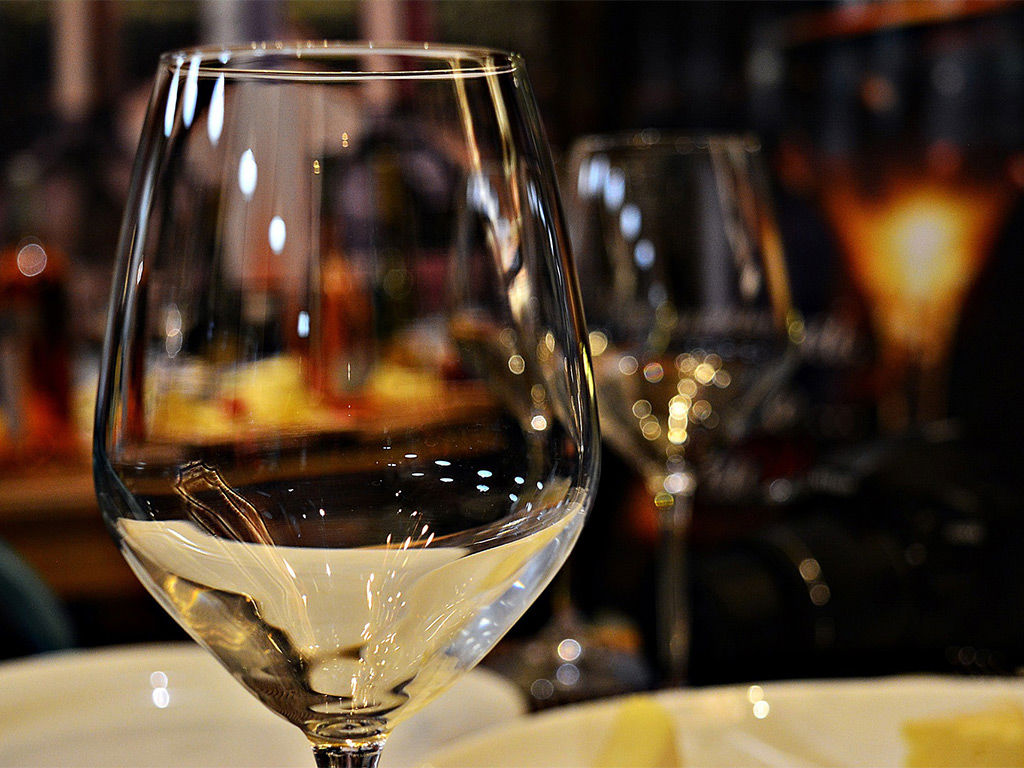
also protected by the DOC Riviera Ligure di Ponente, arrived in Liguria from Greece in the Middle Ages, from one of the Genoese colonies in the Aegean. The Pigato vine, a white berry, is considered a variety of Vermentino. It has a fruity, fragrant aroma, with hints of ripe peach and honey, sometimes of moss and woody resins; the taste is dry but soft, sapid and with a good body.
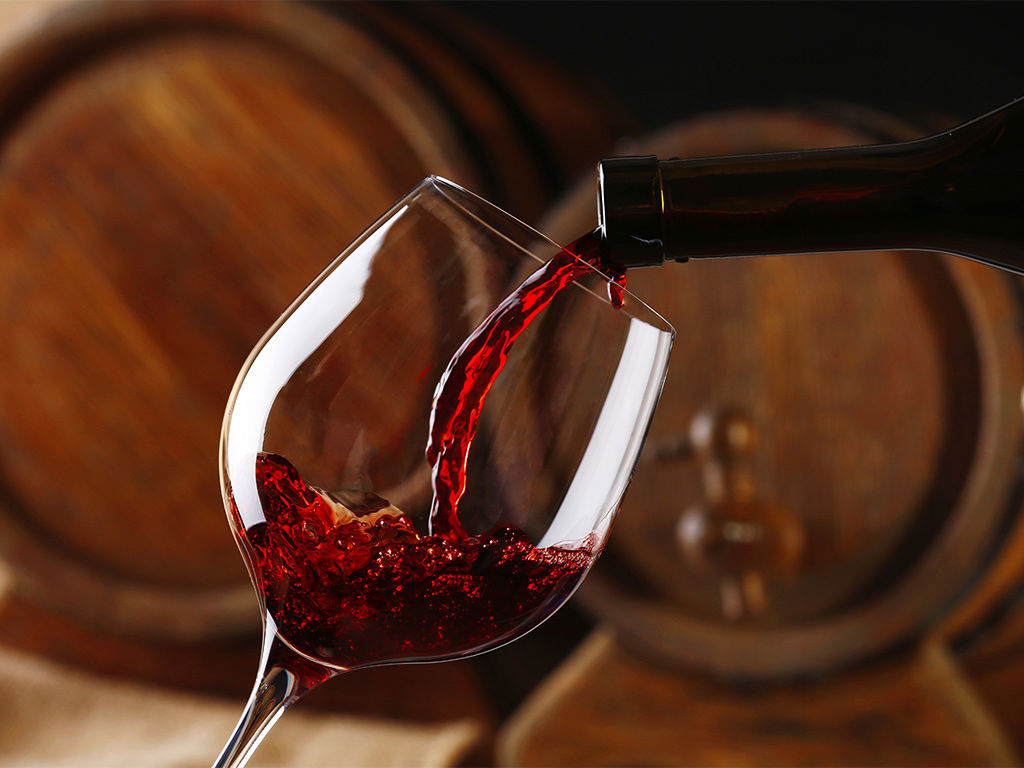
is often bred "ad alberello", as the Mediterranean tradition wants, so that the foliage of the summer plant will shade the foot and the root, protecting them from the sun's rays. The wine obtained from this area, protected by the Riviera Ligure di Ponente DOC, has a ruby red color, an intense but delicate aroma, hints of rose, violet and currant, and a soft, velvety, more or less aromatic taste, with a bitter vein, due to tannins.